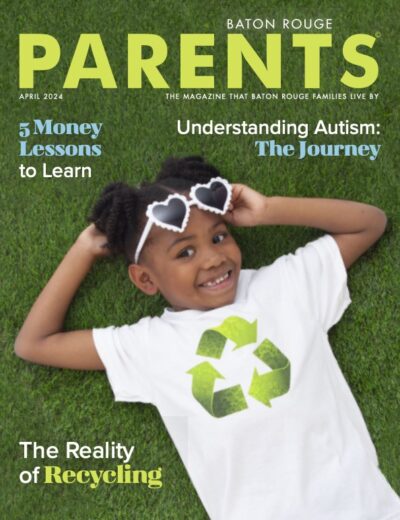
Is Your Child’s Coach Abusive? Beware of These 6 Red Flags
Sports are known for helping kids develop confidence, leadership skills, and a sense of belonging. But when the pressure to perform and unhealthy coaching practices do the opposite, kids find themselves in a tough situation where they may need parental guidance. The problem? Most parents don’t know the abuse is happening until the damage has been done.
The Problem
While research shows that an outsized focus on young athletes’ weight can be damaging, it’s not the only way in which coaches hurt young athletes. According to the European Journal of Sport Science, abusive behavior may be physical, verbal, or include denial of attention and support.
According to sports psychology consultant Dr. Kay Porter, it’s not uncommon for kids to stay quiet in these situations. For high school athletes who dream of making a Division I college team, quitting doesn’t feel like an option. “It’s incredible pressure,” says Dr. Porter. So, she says, they simply “suck it up.”
Jaye, a mom whose daughter endured emotional abuse by her gymnastics coaches, can relate. Her daughter, now 14, had loved gymnastics since she started the sport as a toddler. But when she was 10, new coaches changed that.
Jaye (who asked to be identified by her middle name so she could speak candidly) eventually learned the coaches took a fear-based approach, rarely offering positive reinforcement. She recalls her daughter calling for a ride home in the middle of practice. She thought perhaps her daughter had misbehaved. It turned out she was being penalized for failing to master skills. “[The coaches] would say, ‘You’re not taking this seriously. Go call your mom.’” In her absence, the coaches would use Jaye’s daughter as an example, according to another mom, who requested anonymity. Despite having signed a contract that stipulated parents should contact the coaches with any issues, Jaye says, “The coaches would tell the gymnasts, ‘Do not have your parents email me.’”
Jaye continues, “Looking back, I feel terrible I didn’t pull her sooner. Jaye’s daughter finally quit in 2017 after two years in the program, but her daughter felt trapped. She loved her teammates and felt guilty about quitting the sport in which she and her parents had invested so much time and money.
Knowing her coaches would retaliate against her in practice if her parents talked to them, she was reluctant to speak up. However, Jaye says her daughter appeared depressed during her final year of gymnastics. “I just felt like she lost her happy little spirit,” she says.
According to Dr. Porter, it’s not uncommon for athletes to experience a loss of self-esteem and to develop self-doubt that bleeds into all aspects of their lives as a result of an unhealthy coaching relationship. The experience can also rob athletes of their joy for the sport. There are, however, steps parents and kids can take to find sports programs that support kids’ personal and physical growth.
Vetting a Sports Program
Dr. Porter recommends asking any potential coach and their supervisor about their coaching style. She advises parents to ask whether the coach utilizes resources from Positive Coaching Alliance, a nonprofit dedicated to creating positive, character-driven youth sports environments. Other questions to ask include: “What is the sport culture?,” “How do you support the athletes?” and “What are the consequences of losing?”
Conversations with current athletes and their parents can also be helpful. According to Dr. Porter, the most revealing source of information is often a chat between the child and a current member of the team. “Always watch the coach,” advises Dr. Porter. She recommends attending a competition and observing coach-athlete interactions. Amy Manson, a trainer with Positive Coaching Alliance, says parents should ask themselves: “Do the kids and coaches look stressed out? Happy? Is coaching done with a teaching spirit rather than a critical or degrading spirit?”
Another factor to consider, particularly for younger children, is the time commitment that is required. Melody Fairchild, director of a youth running club, says parents of younger children should be cautious of any program that practices more than three days a week. Fairchild doesn’t advise kids younger than 11 to focus on a single sport. “Multi-sport athletes are more well-rounded mentally and physically,” she explains.
The training schedule should also allow kids to have a family life, says Fairchild. Jaye recalled feeling anxious about emailing her daughter’s coaches about the family’s annual summer vacation, knowing her daughter would be berated for being “behind” upon her return.
While there’s no clear line between sub-par coaching and abuse, certain signs may point to a deeper problem.
- Yelling/name-calling. “Look at the coach’s anger,” advises Dr. Porter. If a coach yells at or calls players names, there may be a deeper issue at play. “A good coach builds up, they do not break down,” cautions Manson.
- Crying after losses. Dr. Porter notes that while it’s not unusual for kids to cry after a loss, parents should find out why, particularly if there are multiple athletes crying on a frequent basis. Jaye says there was a period just before her daughter quit gymnastics when she cried herself to sleep every night.
- Humiliation. Dr. Porter says parents should be wary of coaches who publicly criticize or single athletes out.
- Dismissed concerns. If athletes and/or their parents are raising concerns to the coach or their supervisor and nothing changes, this should raise a red flag.
- Overemphasis on weight. While a leaner frame is an advantage in many sports, excessive pressure to lose weight is unhealthy.
- Loss of joy. Every expert we spoke with said an athlete’s loss of love for the sport should ring an alarm bell. Jaye says she wishes she’d been more proactive when she saw her daughter had lost her enthusiasm for gymnastics. Since quitting the team, she’s found a new sport: climbing. With coaches who emphasize fun, “her self-esteem has been rebuilt,” says Jaye.
It’s not always easy to spot an unhealthy sports program or a bad coach. When in doubt, says Fairchild, it’s always best to trust your gut. “Instinctually, we know when a situation is not life-enhancing,” she explains.





